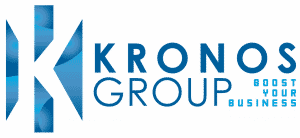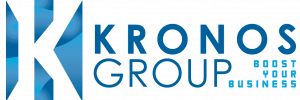How to drive strategic objective achievement with procurement optimisation

Summary
Optimising procurement processes contributes to enhancing the efficiency, effectiveness, and overall value of an organisation. Driving strategic objective achievement by optimising procurement involves adopting technologies such as e-procurement systems to automate routine tasks, improve data accuracy, and enhance decision-making. The role of procurement optimisation in achieving strategic objectives consists of enhancing cost savings, risk management, supplier relationship management, innovation and competitiveness, adaptability, compliance, and continuous improvement. Procurement consultants can help businesses achieve these optimisations for operational excellence and enduring success.
Procurement optimisation is the strategic approach to enhance the efficiency, effectiveness, and overall value of an organisation’s procurement and operational processes. This involves a thorough evaluation and improvement of the end-to-end procurement cycle, from sourcing and vendor selection to contract management and supplier relationship development.
The primary goal is to align procurement activities with the broader strategic objectives of the organisation, emphasising cost savings, risk mitigation, and the acquisition of high-quality goods and services. Optimisation often involves leveraging technology, data analytics, and best practices to streamline workflows, improve decision-making, and foster innovation in supplier relationships.
Driving strategic objective achievement by optimising procurement
Procurement optimisation involves adopting technologies such as e-procurement systems to automate routine tasks, improve data accuracy, and enhance decision-making. It also entails implementing robust supplier relationship management strategies, fostering collaboration and ensuring a diversified and reliable supplier base.
By optimising the procurement function, organisations can position themselves to achieve cost savings, respond to market dynamics, reduce operational risks, and establish sustainable and socially responsible business practices.
The strategic importance of procurement management is often underscored by its role in driving organisational success and competitiveness in a global marketplace.
To achieve strategic objectives through optimisation in procurement, businesses can follow these key steps:
- Align with strategic goals
Clearly define and communicate organisational objectives, ensuring procurement aligns with goals such as cost savings, risk mitigation, sustainability, and innovation.
- Data-driven decision-making
Use data analytics to gain insights into procurement processes, analyse supplier performance, and identify improvement areas using key performance indicators (KPIs).
- Implement advanced technologies
Embrace e-procurement and process automation to streamline tasks, enhance accuracy and allow teams to focus on strategic initiatives and objective achievement.
- Strategic sourcing and relationship management
Implement strategic sourcing to select suppliers based on long-term value. Develop robust supplier relationships for collaboration, innovation, and reliability.
- Cost optimisation and negotiation
Focus on cost optimisation through effective negotiation, bulk purchasing, and process efficiencies, which pushes resource allocation to be aligned with priorities.
- Risk mitigation and resilience
Prioritise risk management by diversifying the supplier base, conducting thorough risk assessments, and implementing contingency plans for business continuity.
- Innovation through collaboration
Foster collaborative partnerships with external stakeholders for expertise, deepening relationships, market trend awareness, and innovation in products and services.
- Compliance and ethical sourcing
Ensure procurement processes comply with legal and ethical standards—maintaining regulatory compliance and safeguarding the organisation’s reputation and social outlook.
- Continuous improvement
Cultivate a culture of continuous improvement by regularly evaluating and refining procurement processes, addressing inefficiencies, and adopting best practices.
- Strategic planning
Utilise insights from procurement data for strategic decision-making. Integrate optimisation in procurement into strategic planning for broader organisational success.
The role of procurement optimisation in achieving strategic objectives
Strategic objectives are specific, measurable goals that an organisation sets to achieve in the long term. They provide a roadmap for the organisation, guiding decision-making and actions to move the company forward.
Procurement management mainly aims at enhancing the efficiency, effectiveness, and strategic alignment of the procurement function within an organisation. An optimised procurement process features a holistic approach that aligns activities with the broader organisational objectives, delivering not just cost savings but resilience, innovation, and strategic value.
Strategic optimisation in procurement holds immense importance for organisations seeking to enhance their overall performance, competitiveness and sustainability. It enables cost reductions across the board, improved risk management practices, and enhanced innovation and sustainability measures.
Strategic alignment of procurement contributes to risk mitigation and resilience management. It involves diversifying the supplier base, conducting thorough risk assessments, and implementing contingency plans, ensuring business continuity even in the face of disruptions.
Moreover, strategic procurement enhances supplier relationship management. Building strong, collaborative partnerships with suppliers is crucial for innovation, quality improvement, and long-term success. Organisations that strategically optimise procurement processes often see improved supplier performance, increased reliability, and a higher level of innovation.
Procurement management and strategic objectives go hand in hand. Strategic objectives are integral to organisational success—offering direction, facilitating measurement, guiding resource allocation, fostering employee motivation, promoting adaptability, and enhancing competitiveness. An established procurement strategy is crucial for business processes as it tends to affect the competitiveness and potential of a business.
Strategic optimisation in procurement plays a crucial role in promoting innovation and competitiveness. By strategically collaborating with suppliers, organisations can tap into external expertise, stay abreast of market trends, and drive innovation in their products and services. Firms with advanced procurement capabilities are more likely to innovate and outperform their competitors.
Furthermore, strategic procurement offers the ability to quickly adjust strategies in response to market shifts, economic conditions, or unforeseen events. This agility is a hallmark of a well-optimised procurement function and is vital for organisations seeking a competitive edge in dynamic industries.
In terms of compliance and ethical sourcing, strategic procurement ensures that organisations adhere to legal requirements and ethical standards. This is particularly important as regulatory environments evolve, and consumers increasingly demand transparency in supply chains. Non-compliance can lead to legal issues, reputational damage, and financial penalties.
It also fosters a culture of continuous improvement within an organisation. By regularly evaluating and refining procurement processes, organisations can identify areas for enhancement, address inefficiencies, and adapt to industry best practices. This commitment to continuous improvement is essential for staying ahead in a rapidly changing business landscape.
Additionally, strategic optimisation in procurement is a critical component of overall corporate governance and strategic planning. The insights gained from procurement data and analysis can inform strategic decisions—helping organisations make informed choices about market positioning, product development, and resource allocation.
Drive strategic objective achievement with procurement optimisation to succeed in procurement transformation
The decision to enlist the expertise of an e-procurement consultant stands as a strategic imperative for businesses navigating the intricate landscapes of contemporary commerce. Procurement consultants serve as vigilant allies in the face of market dynamics, facilitating agile adaptations to emerging trends.
By nurturing collaboration, fortifying control mechanisms, and customising solutions to align with unique business objectives, e-procurement consultants contribute significantly to cost-efficiency and enduring success towards procurement transformation.




